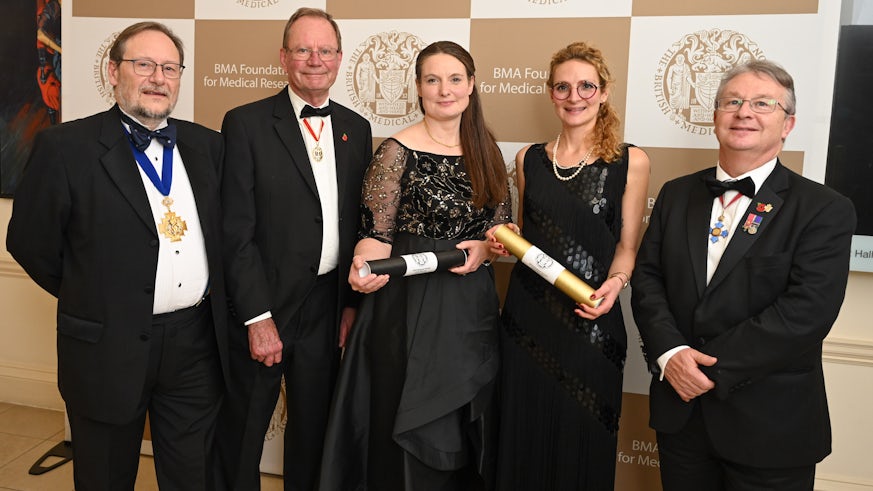Cardiff researchers receive prestigious award by the British Medical Association Foundation for Medical Research for schizophrenia research
3 November 2023

Dr Meike Heurich and Dr Marcella Bassetto, both Senior Lecturers at the School of Pharmacy and Pharmaceutical Sciences, College of Biomedical and Life Sciences at Cardiff University, have received a prestigious British Medical Association Foundation for Medical Research Margaret Temple grant to assist research into schizophrenia.
Dr Heurich, who is a complement immunologist and biochemist with a research interest in immune activation in the development of psychosis and schizophrenia, has teamed up with medicinal chemist Dr Bassetto, to investigate small molecule inhibitors targeting immune pathways linked to schizophrenia risk. Dr Heurich said: “We are honoured to have received this prestigious BMA Foundation for Medical Research award supporting our research into the potential of immunotherapeutics for schizophrenia.”
Dr Bassetto together with Dr Heurich received their award by the British Medical Association Foundation for Medical Research at a ceremony on Tuesday 31st of October 2023. "We were delighted to attend the awards ceremony at BMA house, it was a wonderful and special evening and celebration,” said Dr Heurich.
Schizophrenia is a complex neuropsychiatric disorder with largely unresolved mechanisms of pathology. It is characterised by delusions, hallucinations, disorganised speech, thinking difficulties and lack of motivation, and begins in adolescence or early adulthood. It imposes a significant emotional and economic burden on affected people and their families. Research suggests that early diagnosis and targeted intervention improves outcomes significantly.
While pathological mechanisms are largely unresolved, evidence suggests that immune activation, not only in the brain, but also in peripheral blood, may play an important role. Growing evidence suggests that upregulation of the blood-based innate immune system, the complement system, contributes to schizophrenia development. However, current intervention strategies in schizophrenia do not address immune activation or complement dysregulation mechanisms as strategic targets.
With this work, the project team aims to develop inhibitors of key components of the complement system, as an intervention strategy to control activation. Such inhibitory agents could provide early-stage pre-clinical drug candidates with the potential to prevent and/or treat immune activation in schizophrenia.